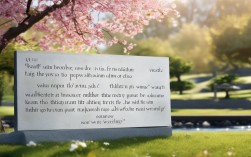核心名言:关于平等与灵魂
"Do you think, because I am poor, obscure, plain, and little, I am soulless and heartless? You think wrong! — I have as much soul as you — and full as much heart! And if God had gifted me with some beauty and much wealth, I should have made it as hard for you to leave me, as it is now for me to leave you. I am not talking to you now through the medium of custom, conventionalities, nor even of mortal flesh: — it is my spirit that addresses your spirit; just as if both had passed through the grave, and we stood at God's feet, equal, — as we are!"
中文翻译:
“你以为,因为我贫穷、低微、不美、矮小,我就没有灵魂,没有心吗?你想错了!——我的灵魂跟你的一样,我的心也跟你的完全一样!如果上帝赐予我一些美和一点财富,我就要让你难以离开我,就像现在我难以离开你一样,我不是通过习俗、惯例,甚至不是通过凡人的肉体跟你说话,而是我的精神在同你的精神说话,就像两个都经过了坟墓,我们站在上帝的脚跟前,是平等的——因为我们是平等的!”
背景解读: 这是《简·爱》中最著名的一段独白,出自小说第23章,当时,罗切斯特先生试图用财富和社会地位来“定义”和“控制”简·爱,而简·爱用这段充满力量的话语,捍卫了自己作为人的尊严和灵魂的平等,这是女性主义文学的里程碑,强调了内在价值远胜于外在条件。
关于自尊与独立
"I am no bird; and no net ensnares me: I am a free human being with an independent will."
中文翻译:
“我可不是一只鸟,没有罗网能捕捉我:我是一个有独立意志的自由人。”
背景解读: 这句话同样出自第23章,紧接在上一段独白之后,简·爱用“鸟”和“网”的比喻,生动地表达了她拒绝被当作宠物或附庸品,坚决维护自己独立人格的决心,她要的不是被豢养,而是被平等地对待。
关于爱与牺牲
"I would always rather be happy than dignified."
中文翻译:
“我宁愿快乐,也不愿故作尊严。”
背景解读: 这句话出自第27章,当简·爱发现罗切斯特已有妻子,并面临痛苦抉择时,她说出了这句话,它表明,简·爱不是一个被僵化道德束缚的伪君子,她珍视真实的情感和幸福,甚至愿意为此放弃世俗的“尊严”和安稳的生活,这展现了她真诚、不虚伪的品格。
关于坚持原则
"I care for myself. The more solitary, the more friendless, the more unsustained I am, the more I will respect myself."
中文翻译:
“我要自重,越是孤独,越是无人依靠,越是得不到支持,我就越要尊重我自己。”
背景解读: 这句话出自第27章,是简·爱决定离开桑菲尔德庄园时的内心独白,尽管她深爱罗切斯特,但她不能违背自己的道德原则,她认识到,失去自我比失去爱情更可怕,即使在最艰难的时刻,她也要坚守自己的底线和尊严。
关于人生与苦难
"Life appears to me too short to be spent in nursing animosity or registering wrongs."
中文翻译:
“我觉得人生太短暂了,不应该用来记恨和记仇。”
背景解读: 这句话体现了简·爱成熟和豁达的人生观,她经历了许多不公和磨难,但她选择放下仇恨,向前看,这表明她的内心强大而平和,没有被过去的痛苦所吞噬。
关于对上帝的信仰与反抗
"I will keep the law given by God; sanctioned by man. I will hold to the principles received by me when I was sane, and not mad — as I am now. Laws and principles are not for the times when there is no temptation: they are for such moments as this, when body and soul rise in mutiny against their rigour; stringent are they; inviolable they are."
中文翻译:
“我要遵守上帝颁布、世人认可的法律,我要坚守我神志健全时、而非现在这样癫狂时所接受的原则,法律和原则并不是在没有诱惑时才需要遵守的,它们正是在像现在这样,肉体和灵魂一起起来反抗它们的严酷时才需要遵守的,它们是严格的,是不可违背的。”
背景解读: 这句话是简·爱对自己离开罗切斯特这一决定的最终解释,她将自己对道德原则的坚守,上升到了对上帝和法律的敬畏,她认为,真正的信仰和原则,正是在面临巨大诱惑和痛苦时才显得尤为重要,这为她的“出逃”行为提供了坚实的道德和宗教依据。
这些名言共同塑造了一个独立、自尊、坚韧、真诚且追求精神平等的伟大女性形象,至今仍能引起读者的强烈共鸣。












